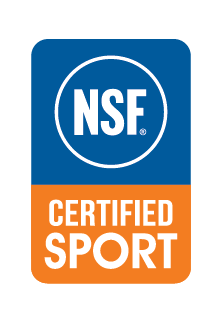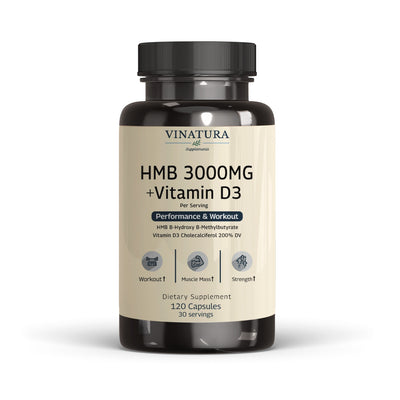
Can Liver Detox Cause Acne? Understanding the Connection
Many people believe a liver detox cleanses the body, but some are surprised by sudden acne breakouts.
Does a liver detox really cause acne, or is it just a temporary reaction? This article dives into the connection between your liver, detox, and acne, while offering practical tips to manage skin changes.
Before exploring further, please read the disclaimer located at the end of this webpage.
Key Takeaways
- Liver detox may cause acne due to toxin release and hormonal shifts [2].
- Detox acne is temporary; hydration and diet can help [3,6].
- Gentle skincare and rest support clearer skin during detox [1].
Can Liver Detox Cause Acne?
Yes, a liver detox can sometimes cause acne, though the effect is usually temporary. During detox, the liver works harder to filter out waste, and as toxins are released, some may exit through the skin.
This process can clog pores, trigger irritation, and lead to breakouts. Hormonal shifts or increased sebum production during detox may also increase the likelihood of acne.

The liver is your body’s main detox hub, working alongside the skin, kidneys, and other organs to clear out unwanted substances [5].
When detoxing, toxin levels in the bloodstream can temporarily rise, pushing some waste through the skin and contributing to clogged pores [2].
Oleksandr Bomikhov and Daria Kulikovska in 2023 proposed a hypothesis that disruptions in lipid detox—where fats and toxins accumulate—may stimulate sebum production, creating a favorable environment for acne-causing bacteria and inflammation [2].
While this idea has not been tested in human studies, it highlights a possible link between detox processes and acne flare-ups.
It’s worth noting that popular “detox” drinks like lemon water lack strong clinical evidence for clearing acne [4]. However, natural detox adjustments—such as those experienced during a celery juice cleanse—may still cause short-term skin reactions as the body adapts [3].
The good news is that these effects often fade once your system reaches balance again.
The Relationship Between Acne and Detox

Acne usually forms when pores become clogged with dead skin cells and excess sebum. During a detox, the body works harder to eliminate waste through the liver, kidneys, and skin.
This extra activity can sometimes increase sweat and oil production, making pores more prone to blockage and leading to temporary breakouts. These so-called “detox acne” flare-ups are generally mild and tend to fade as the body stabilizes.
Your liver plays a central role in this process, acting like a natural filter that removes toxins, hormones, and fats from circulation [3]. When detoxing, it becomes more active in processing and eliminating unwanted substances, and in some cases this can affect the skin by temporarily boosting oiliness or perspiration [2].
Evidence from a 2023 study by Diola Dosti and Klotilda Marku found that a celery juice detox improved liver markers such as bilirubin in 89% of participants, suggesting enhanced toxin clearance.
Although the study did not specifically examine acne outcomes, its findings imply that increased liver detox activity could temporarily influence skin reactions [3].
Unlike persistent acne, which is often linked to long-term factors like hormone imbalance, dietary habits, or stress [1,6], detox-related breakouts are usually a short-lived response to the body’s accelerated “cleanup.”
Still, it’s important to keep in mind that not all detox methods are supported by science—popular drinks such as lemon water, for instance, lack solid clinical evidence for improving skin health [4]. In most cases, any detox-related acne resolves on its own once the body returns to balance.
Causes of Detox Acne
Detox-related acne often arises when the body is adapting to sudden lifestyle or dietary changes. Eliminating foods like sugar and dairy, or starting a more plant-focused diet, can temporarily disrupt hormone balance and increase sebum production.
This extra oil, combined with the body’s effort to expel toxins, may clog pores and cause breakouts. People with oily or sensitive skin usually notice these reactions more strongly.
On forums like Reddit, several individuals have shared that when they cut out sugar and dairy in favor of a healthier diet, their skin initially became worse, with breakouts appearing on the forehead and cheeks.*
Community responses often frame this as part of a detoxification process: once sugar is removed, hormone activity shifts, and the body pushes out toxins, which can briefly worsen acne. However, many note that these flare-ups usually improve after a few weeks once the body adjusts.*
Scientific research also supports this idea. If the liver becomes overworked—such as during intense detox diets or heavy supplement use—it may struggle to clear toxins efficiently, leading them to surface through the skin.
Additionally, restrictive detox diets low in essential nutrients can raise cortisol, a stress hormone associated with acne flare-ups, as highlighted by Dall’Oglio et al. in 2021 [6]. Fortunately, these effects are usually short-lived, resolving as the body stabilizes and regains balance.
How to Manage Acne During the Detox Phase
The first step is hydration. Drinking at least eight glasses of water a day supports your liver and kidneys in flushing out waste, which reduces the buildup that can linger in your system and contribute to clogged pores [3].
Alongside hydration, getting 7–8 hours of restful sleep helps stabilize hormone levels—important because hormonal shifts are closely tied to acne flare-ups [1].
A balanced diet also plays a big role. Try to fill your meals with antioxidant-rich foods like leafy greens, berries, and nuts. These ingredients provide vitamins and protective compounds that may reduce skin inflammation.
On the other hand, limiting sugary snacks or dairy products may help minimize breakouts, as highlighted in a 2021 review by Dall’Oglio and colleagues [6].
To make this journey more enjoyable, you can also include simple drinks that support detox and overall skin health. In their 2023 video, the Beauty Within hosts shared several favorites: a refreshing morning glass of lemon water with apple cider vinegar to boost hydration, a turmeric “golden latte” rich in anti-inflammatory curcumin, and antioxidant-packed matcha with EGCG compounds.*
They also highlighted dandelion root tea, which has been associated with supporting liver detox and raising glutathione levels, and spearmint tea, which some find helpful for calming hormonal flare-ups.*
While many of these drinks are based on traditional use or small-scale studies—sometimes in animals or lab settings rather than humans—they offer approachable ways to add antioxidants and variety into your daily routine. However, more clinical studies in humans are needed
Your skincare during detox should be gentle but consistent. Cleansing the face twice a day removes sweat and impurities, while mild exfoliation once a week helps prevent pores from becoming blocked with dead skin cells. Clay or oatmeal masks can provide a soothing effect, especially when the skin feels irritated.
For those who use detox supplements, it’s important to start gradually.
On Amazon, customer Lighthouse Keeper shared her personal experience with a supplement containing Calcium Disodium EDTA, Activated Zeolite, and Kale Extract.*
She felt it supported her liver and overall detox, but noticed that when she took two capsules too quickly, her body reacted in a way she considered part of the detox adjustment.*
Based on her experience, she suggested starting with one capsule daily and only increasing gradually if it feels comfortable. For her, taking things slow made the process gentler.*
For example, dandelion root tea—mentioned above—was noted in Dr Oz’s study where people with acne-prone skin were found to have about 20% lower glutathione levels compared to those with clearer skin.
By combining hydration, rest, mindful eating, antioxidant-rich drinks, and supportive skincare, most detox-related breakouts fade as the body finds balance again.
Frequently Asked Questions
1. What Are the Signs That Your Liver Is Detoxing?
Your liver may be detoxing if you feel tired, have headaches, or notice digestive changes like bloating or diarrhea. Skin reactions, such as temporary acne, can also occur as toxins are released.
2. What Toxins Cause Acne?
Toxins like heavy metals, environmental pollutants, and excess hormones can clog pores or cause inflammation, leading to acne during detox. These are often cleared through the skin.
3. Why Have I Suddenly Got Loads of Acne?
Sudden acne may stem from detox pushing toxins through your skin, hormonal shifts, or dietary changes. Stress or oily skincare products can also contribute.
4. What Does Liver Detox Feel Like?
Liver detox might bring temporary fatigue, nausea, or skin changes like breakouts. Some feel more energy as the body clears toxins, but experiences vary.
Conclusion
Detox is often a mixed experience—sometimes refreshing, sometimes a bit tough on the skin. What truly matters is listening to your body and making gentle adjustments along the way. Instead of seeing it as a quick fix, think of it as part of a longer journey toward balance.
And who knows—your next step might bring not only clearer skin, but also a lighter body, a calmer mind, and daily habits that make you feel better overall. So, what small change will you start with today?
Testimonial Disclaimer
*The testimonials presented on this website are provided by individuals based on their personal experiences with our products. These testimonials represent individual opinions and experiences, which may not be typical or applicable to all users of our products. Results may vary depending on a variety of factors, including individual health, lifestyle, and adherence to product usage instructions.References
- [1] Ravisankar, P. “ACNE-CAUSES and AMAZING REMEDIAL MEASURES for ACNE.” ResearchGate, www.researchgate.net/publication/340874478_ACNE-CAUSES_AND_AMAZING_REMEDIAL_MEASURES_FOR_ACNE.
- [2] Oleksandr Bomikhov, and Daria Kulikovska. Cracking the Acne Code: The Role of Detoxification. 1 Jan. 2024, papers.ssrn.com/sol3/papers.cfm?abstract_id=4894441, https://doi.org/10.2139/ssrn.4894441.
- [3] Dosti, D., & Marku, K. (2023). CELERY DETOX 3-6-9 Effects for Weight Loss and Liver Cleanse. Journal of Hygienic Engineering and Design, 43, 307–314, https://www.cabidigitallibrary.org/doi/abs/10.5555/20230484429.
- [4] Sheikh, Rasil. The Science behind the Trends: Evaluating Popular Acne Remedies on Social Media against Clinical Evidence. 1 Jan. 2025, https://doi.org/10.2139/ssrn.5366525.
- [5] Klein, A. V., and H. Kiat. “Detox Diets for Toxin Elimination and Weight Management: A Critical Review of the Evidence.” Journal of Human Nutrition and Dietetics, vol. 28, no. 6, 18 Dec. 2014, pp. 675–686, https://doi.org/10.1111/jhn.12286.
- [6] Leung, Alexander KC, et al. “Dermatology: How to Manage Acne Vulgaris.” Drugs in Context, vol. 10, 11 Oct. 2021, pp. 2021–86, https://doi.org/10.7573/dic.2021-8-6.
Author

Product Disclaimer
Including an ingredient or study does not evaluate, endorse, or recommend any Vinatura product or any third-party product. Some ingredients discussed may not be used in any Vinatura product.
The content of the articles has not been evaluated by the Food and Drug Administration (FDA) and is not intended to promote or endorse any specific product. Any products sold on this website are not intended to diagnose, treat, cure, or prevent any disease.
Opinions and Endorsements
Any claims, statements, or opinions expressed in the articles are those of the author(s) and do not necessarily reflect the views or opinions of the manufacturers of the dietary supplement products. The products sold on this website are separate from the content of the articles and are not directly endorsed or associated with the information presented here.
Liability Disclaimer
The author(s) of the articles, website, and manufacturers of the dietary supplement products do not assume any liability for any potential consequences arising from the use of the information provided in the articles. Ingredient effects, dosages, and safety vary by individual, formulation, and context; some ingredients interact with medications or may be unsuitable during pregnancy or lactation. It is recommended that individuals consult with a qualified healthcare professional before making any dietary or lifestyle changes, including the use of dietary supplements.
Product Usage
Please refer to the product labels and packaging for specific usage instructions and guidelines for the dietary supplement products sold on this website.
Customer Support
For any concerns or questions regarding the dietary supplement products, please contact our customer support team, who will be more than happy to assist you.






Leave a Comment
Be the first to comment.
What do you think?